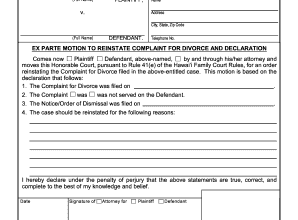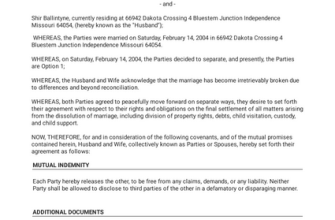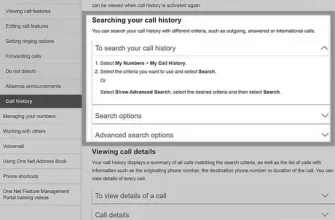There are a few different ways to find a divorce record in California. First, you can go to the website of the court in which the divorce took place. Most court websites will list their contact information and a way to get a copy of the divorce decree. Next, you can choose to look up the records by name, such as «Fred X. X.» Once you find the divorce case number, you can contact the court directly. However, you should expect to wait anywhere from two weeks to six months before receiving your copy of the divorce decree or certificate.
- Notarized affidavit of authority required to obtain a divorce decree
- Cost of obtaining a copy of a divorce decree
- Obtaining a copy of a divorce decree online
- Obtaining a copy of a divorce certificate
- Setting the record straight with your in-laws before divorcing
- Protecting yourself from disrespectful in-laws
- Avoiding controversial topics with in-laws
- Moving out of the family home during a divorce
Notarized affidavit of authority required to obtain a divorce decree
Getting a divorce decree in California requires a notarized affidavit of legal authority. These documents are signed by the parties, under oath under penalty of perjury. The documents must contain certain specific information and be signed in the presence of a notary. Each state has different requirements for notarized affidavits.
Notary services are available at law offices, post offices, and banks. The notary must witness the document and administer an oath or affirmation to the signer. The person signing must be present, and all of the signatures must be authentic. The document must be signed with an acceptable photo ID for each signer. The notary should be able to verify each signature, as well as the identity of the signers.
A divorce decree in California can be obtained for a variety of reasons. For instance, you might need the document to prove your divorce, or to take your ex-spouse to court for breaching the divorce decree. Before asking for a divorce decree, it is helpful to know the difference between a California divorce certificate and a California divorce decree. Once you know the difference, you can get a divorce decree without too much hassle.
If you wish to get a divorce decree in California, you will need to have the proper documents in front of a notary. In addition to having your legal documents notarized, you should have photocopies of everything that’s required. Then, if you have any questions, make sure to consult with your notary and explain your situation.
The notary must state that it has no financial or beneficial interest in the party requesting the divorce decree. A notary must also notarize the document, and notarize the signature. The Notary must notarize the document before it is legally binding. If you’re considering becoming a notary, consider these tips. You’ll be glad you did!
When you’re applying for a divorce decree in California, you need to get a notarized copy of your marriage certificate. You can order the document online or visit the appropriate county courthouse. If your search takes more than a day or two, you can get your notary-signed divorce decree while you wait. In the case that your search takes more than an hour, you can also obtain a certified copy.
Cost of obtaining a copy of a divorce decree
There are two basic types of divorce decrees in California: authorized and informational. Certified divorce decrees must be obtained from a specific county Superior Court, and informational divorce decrees are available for research purposes, such as family history. An informational divorce decree bears a stamp declaring that the document is not valid for identification purposes. California considers divorce decrees to be private documents, so it costs money to obtain a copy.

In California, certified copies of divorce decrees are only available from the Superior Court of the county where the divorce was filed. A Certificate of Record includes the names of the parties to the divorce, the county where the divorce was filed, and the court case number. However, this is not a certified copy of a divorce decree, and it does not confirm that the divorce was finalized in court. To obtain a certified copy, you will need to visit the Superior Court where the divorce was filed and obtain a copy of the final judgment.
If the original divorce decree was filed in another state, the California Superior Court can issue a certified copy of the finalized divorce decree. This document can be obtained online by using the court’s search tool, or you can approach the clerk of the court in person. The Superior Court in Santa Clara has a website where you can search for divorce records. In some cases, a certified copy of a divorce decree is required for legal reasons.
The cost of obtaining a copy of a California divorce decree varies depending on where you want to obtain the document from. A certified divorce decree costs approximately $30, but you can obtain it for much less if you are willing to pay a small fee for it. If the search takes more than a few hours, it is possible to get a copy of the decree while you wait.
If you are a person seeking a copy of a California divorce decree, you must provide the name and identity of the spouse requesting the copy. You should also provide any valid identification you might be required to prove. In some cases, you should provide proof of your relationship with the divorce records, since these records are public records. The cost of obtaining a copy of a California divorce decree depends on the state you are in, the county in which the divorce took place, the type of divorce decree you are requesting and how many copies you want.
Obtaining a copy of a divorce decree online
In California, the Superior Court has an online divorce document search tool that will allow you to get a copy of your divorce decree, if your marriage was finalized by that court. You can also request a certified copy of your divorce decree for a fee. A certified copy is a court-verified copy and may be necessary for legal reasons. In California, the Superior Court is located in Santa Clara.
The divorce decree can also include other details about your former relationship. It may detail the child custody arrangements and visitation. In some states, you must submit a notarized document signed by both parties. This document will likely include details about your former partner’s assets and debts. It may also contain other contingencies. If you need to obtain a copy of your divorce decree, you can get it quickly and easily online.
The divorce decree is public record, which means that anyone can access it. However, divorce records can contain information about your personal life, which may cause embarrassment or conflict. To avoid such a situation, you should obtain a copy from the courthouse. California’s Superior Court has a list of authorized requestors. If you want to obtain a copy of your divorce decree, you must be at least eighteen years old. If you want to obtain a copy of your divorce decree from the state’s courts, you must pay a fee.
The divorce decree is a final enforceable court judgment that clarifies the terms of your divorce. It is not the same as your marriage certificate. It is signed by the judge who oversaw the divorce and will outline all the details of the case. Unlike your marriage certificate, this document contains crucial details about your divorce, including custody, visitation rights, and property division. So it’s important to obtain a copy of your divorce decree for legal reasons.

A certified divorce decree can be obtained only from the Superior Court of the county in which you filed for your divorce. The CDPH only issues Certificates of Record for divorces that were finalized between 1962 and 1984. Certificates of Record contain the names of both parties, the county where the divorce was filed, and the court case number. However, they do not contain the divorce decree. It is important to note that divorce records are not always publicly available through these sources.
Obtaining a copy of a divorce certificate
The first step in obtaining a copy of your California divorce certificate is to locate the court that issued the divorce decree. Depending on the state, you may need to fill out a form and show proof of identity. You should know that a copy of the decree is only available to the people named on it, and that you may be required to pay a fee for the service. Then, submit your request to the Superior Court for the county where the divorce took place.
There are several ways to obtain your divorce certificate in California. The first method involves contacting the clerk of the court in which the divorce took place. You may also contact the court clerk directly by mail. If you need to get a copy of your certificate sooner, you may consider visiting the court website or utilizing the services of online resources. The process takes anywhere from 10 to 12 weeks. After you find the court clerk’s contact information, send your request via the online or mail.
There are many reasons that you might need a copy of your divorce decree. You may need it for proof of divorce, or you may need to take your ex to court for violating the divorce decree. It’s important to understand how to get a copy of your divorce decree in California, and what to expect when you ask for a copy. Remember, divorce certificates are different from divorce decrees.
You can obtain a copy of your divorce certificate by visiting the Department of Public Health in your county. Marriage and birth records are maintained at this office. If you wish to obtain a certified copy of your divorce record, you’ll need a notarized statement. You should also prepare a check or money order for $14 per copy. You should also fill out an application called the VS 113-B. To obtain your copy, you must mail it to the CDPH, but note that courier services may not deliver to a P.O. Box.
A divorce decree is similar to a divorce certificate, except that it is issued by the court. It contains information about the divorce judgment, including how children will be raised and what their parents will be responsible for. The judgment also specifies spousal support, property division, and visitation rights. The divorce decree is signed by the judge who oversaw the divorce, and it also includes the case number. It is usually only accessible to the divorcing parties.
Before you file for divorce, you may wonder: Should I set the record straight with my in-laws? This article will cover the importance of setting the record straight, how to avoid controversial topics and how to protect yourself from disrespectful in-laws. The tips in this article are also useful for couples planning to leave the family home during the divorce process. They may help you navigate this tricky situation and prevent unnecessary conflict in the future.
Setting the record straight with your in-laws before divorcing
In the days of divorce, setting the record straight with your in-laws can be a challenging task. Your in-laws probably know your children better than you do and may be more understanding of your marriage than you are. However, there are some ways you can protect yourself from the rumor-mongering brother-in-law. For example, you could bar him from seeing your children or from talking to them.

Protecting yourself from disrespectful in-laws
If your in-laws are disrespectful, there are several steps you can take to protect yourself from them. The first step is to talk to your spouse about their behavior. Don’t jump to conclusions; listen to your spouse’s point of view before making a final decision. Avoid yelling about their disrespect to your spouse and avoid putting your own needs above theirs. Keeping a distance from your in-laws may seem counterproductive, but it will prevent you from putting your relationship in danger.
Another way to protect yourself is to make sure your in-laws are aware of your limits. You might be worried about their reactions if they feel threatened or uncomfortable around you. If they repeatedly cross boundaries, you may want to separate yourself from them. By doing so, your husband’s in-laws will not have a chance to be disrespectful towards you and your children. This may lead to divorce, but you will be happier and less stressed in the long run.
When dealing with disrespectful in-laws, set boundaries and limits. Taking time away from them may be the only way to lead a happy life without constant stress. If you and your partner don’t want to be stressed, try to find hobbies that can distract you from them. Then, you can spend your time focusing on yourself and your children. When you’re able to separate from your in-laws, you’ll have the freedom to focus on your life in other ways.
While a few of these tactics might seem counterintuitive, the reality is that they can cause major damage to your marriage. You must take steps before and during your marriage to avoid letting them destroy your relationship. The in-laws can destroy your marriage deliberately or unintentionally, so understanding their tactics will help you protect yourself and your marriage. Healthy adults recognize that they have two separate relationships with each other and make attachments.
Avoiding confrontations between in-laws and their children is another way to protect yourself from in-laws. Trying to change your in-laws by refusing to live in their home will only increase their power. If you want to avoid this, set up physical and psychological boundaries to protect yourself and your children. If this does not work, consider living in another part of town, or relocating to a different area. If possible, align yourself with your spouse and your children. As a result, your new family will be stronger and better able to present a united front to your new spouse.
Avoiding controversial topics with in-laws
One way to avoid a tense conversation is to try to learn about your in-laws. Before you meet, ask about their hobbies and interests. Read up on them beforehand to figure out what they might be comfortable discussing. Avoid controversial topics, such as divorce, if you can. It’s also a good idea to get to know your new spouse’s family as well. Read up on your in-laws’ personalities and read up on the room.
Moving out of the family home during a divorce
If you’re going through a divorce, you’re probably concerned about financial matters. You may be worried about having to continue paying the house mortgage, and there are also financial ramifications to moving out of the family home. Thankfully, there are options for those who want to remain in the home, including living with family and friends. There are some legal ramifications involved as well, which you should know before making the move.
If you’re planning to move out of the family home, there are many reasons you might want to do so. A divorce is stressful and emotionally difficult. The obvious solution is to move out, but there are pros and cons to staying in your family home during a divorce. You may decide to move out before you’ve signed your divorce papers. The benefits of moving out of the family home will outweigh the drawbacks.
One of the biggest drawbacks to moving out is that it may negatively impact your children. However, if your divorce is amicable, it will make it easier to move out. You can also work out a shared parenting schedule after moving out. If you have children, a divorce will have a major impact on the custody battle. However, the good news is that moving out won’t mean you forfeit your rights to custody.
The courts will likely want to maintain the status quo in cases where the parties cannot agree on how to spend the children. In addition to limiting conflict and stress, moving out will help settle the case. Moving out will also allow you to qualify for child support and alimony pendente lite. And it will help you get the support you need during this tough time. If you’re still living with your partner, the courts won’t grant you any support, regardless of the circumstances.
If you’re the one who moves out of the family home, you’ll likely have to pay a separate rent, but the other party will keep the house. Depending on how you plan to settle this, you may get compensation from your ex spouse. If you choose to stay in the house, you’ll usually be awarded a share of joint investments and get a portion of the proceeds. Ultimately, though, you’ll be out of control of the house’s contents, so you’ll have to decide whether you want to stay or move.








